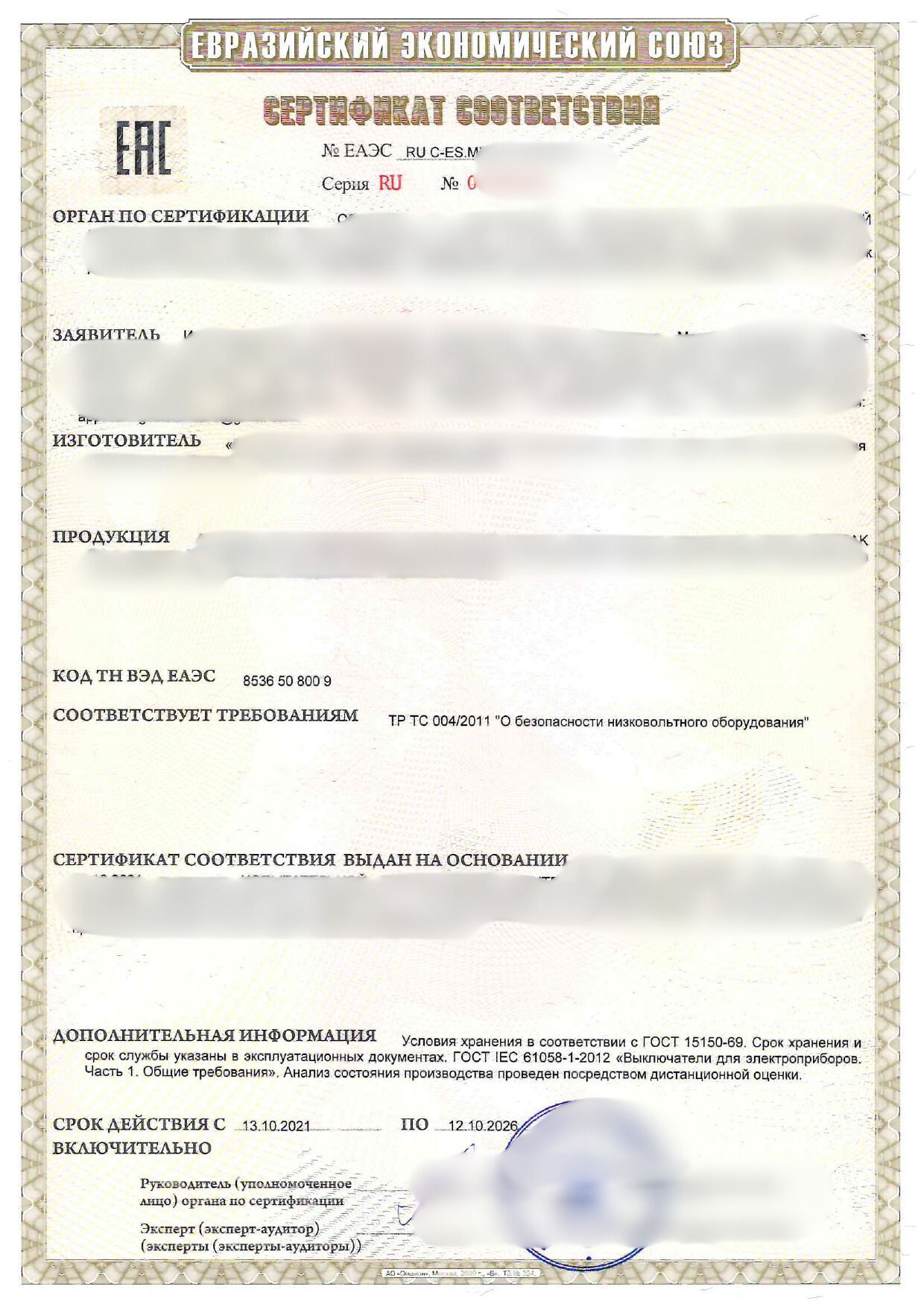The EAC Certificate of Conformity is a strict CU TR approval. Unlike the EAC Declaration, it always requires validation by a certification body and testing in accredited EAEU laboratories.
What is an EAC Certificate of Conformity?
The EAC Certificate of Conformity is a stricter approval under CU TR regulations. Unlike the EAC Declaration, manufacturer test reports alone are never sufficient: in every case, compliance must be validated by a certification body and confirmed through testing in accredited EAEU laboratories. The scope of Certificates is formally the same as that of Declarations, but they apply to products that require higher levels of safety and protection, such as industrial equipment, machinery, and products with significant impact on health and safety.
What documents are required?
Because the products are always tested in the EAEU, the client’s own test reports are of limited value. What becomes indispensable is complete technical documentation—manuals, drawings, calculations, and a Technical Passport in Russian—together with all available quality certifications of the manufacturer, such as ISO, and documentation of the Quality Management System (QMS).
How long is it valid?
EAC Certificates of Conformity can be issued for a single contract/shipment, or for 1, 3, or 5 years, with 5 years being the most common option. However, some companies prefer to request a 1-year certificate or even a single-shipment certificate in order to avoid the obligation of undergoing the annual audit.
What does the annual audit consist of in EAC Certificates of Conformity?
Certificates issued for serial production with a validity longer than one year are subject to an annual audit. This procedure includes additional fees and focuses mainly on the manufacturer’s internal processes and quality management system. Each CU TR regulation disciplines the annual audit differently, but in all cases it is an extra cost and requirement that must be considered from the very beginning of the certification process.
What happens if I don’t have it?
The consequences are essentially the same as with the EAC Declaration: without a Certificate, goods will be blocked at customs, leading to fines and additional charges. If a Certificate has been issued incorrectly and the product is found non-compliant, authorities can initiate a non-conformity procedure, including product recall and corrective measures. However, since Certificates cover products that require a higher level of protection, controls are more frequent and the risk of having a Certificate placed in a “suspended” or “archived” status is significantly higher.
Does a Certificate issued in Russia have the same value as one issued in Kyrgyzstan or another EAEU country?
Yes. From a legal perspective, an EAC Certificate of Conformity issued in any EAEU country has the same validity. The difference lies not in the country of registration, but in the quality of the actors involved in the process. Choosing an accredited laboratory with a solid track record and a certification body that strictly follows procedures can make a significant difference in terms of reliability and long-term acceptance.
Free Certificates Review
- Validation of your current certificates
- Regulatory update check
- Guidance on renewal
